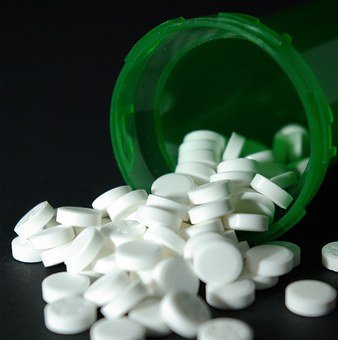Meds For Lowering Cholesterol
High cholesterol levels significantly increase your risk of heart disease and stroke. The best way to lower high cholesterol is through the proper diet and exercise. If diet and exercise do not sufficiently lower your cholesterol levels, however, your doctor may prescribe a single medication or a combination of medications to help you.
STATINS
One of the most commonly prescribed cholesterol-lowering medications is a type called a statin. Statins block substances that your liver needs to make cholesterol and help your body reabsorb cholesterol that has already accumulated on your artery walls. The National Heart, Lung and Blood Institute notes that statins can lower your LDL cholesterol levels by 20 to 60 percent and can also increase your HDL cholesterol levels moderately. Most people tolerate statins well. When side effects do occur, they are usually minor and affect the gastrointestinal tract. The most common side effects of statin use include gas, constipation, abdominal cramps and bloating.
CHOLESTEROL ABSORPTION INHIBITORS
Cholesterol absorption inhibitors work by reducing the amount of cholesterol that your small intestine absorbs. Instead of entering your bloodstream, a percentage of the cholesterol you obtain through your diet is expelled from your body through your stool. According to the Mayo Clinic, cholesterol absorption inhibitors are often used in conjunction with statins.
BILE ACID SEQUESTRANTS
Your liver uses some of the cholesterol in your bloodstream to make bile, which is necessary for the proper digestion of fats. When the amount of bile in your body decreases, it signals the liver to produce more bile. Bile acid sequestrants work by binding to bile and inhibiting it from performing its function. The liver interprets this as a low concentration of bile in the body and begins to make more bile, using cholesterol and lowering the amount of the lipid in your blood. Like cholesterol absorption inhibitors, bile acid sequestrants are often used in conjunction with statins. The National Heart, Lung and Blood Institute notes that independently, bile acids can reduce your LDL cholesterol levels by 10 to 20 percent. When used in combination with statins, they can lower LDL cholesterol levels by more than 40 percent.
NIACIN
Niacin, also referred to as nicotinic acid, has the most significant effect on triglyceride levels, but can lower LDL cholesterol levels by approximately 10 to 20 percent. It is important to note that prescription niacin differs from over-the-counter niacin supplements. You should not use niacin supplements in an attempt to lower your cholesterol levels.
REFERENCES
American Heart Association: Cholesterol-Lowering Medications
National Heart, Lung and Blood Institute: Cholesterol Lowering Medications and You
Mayo Clinic: High Cholesterol: Treatments and Drugs
